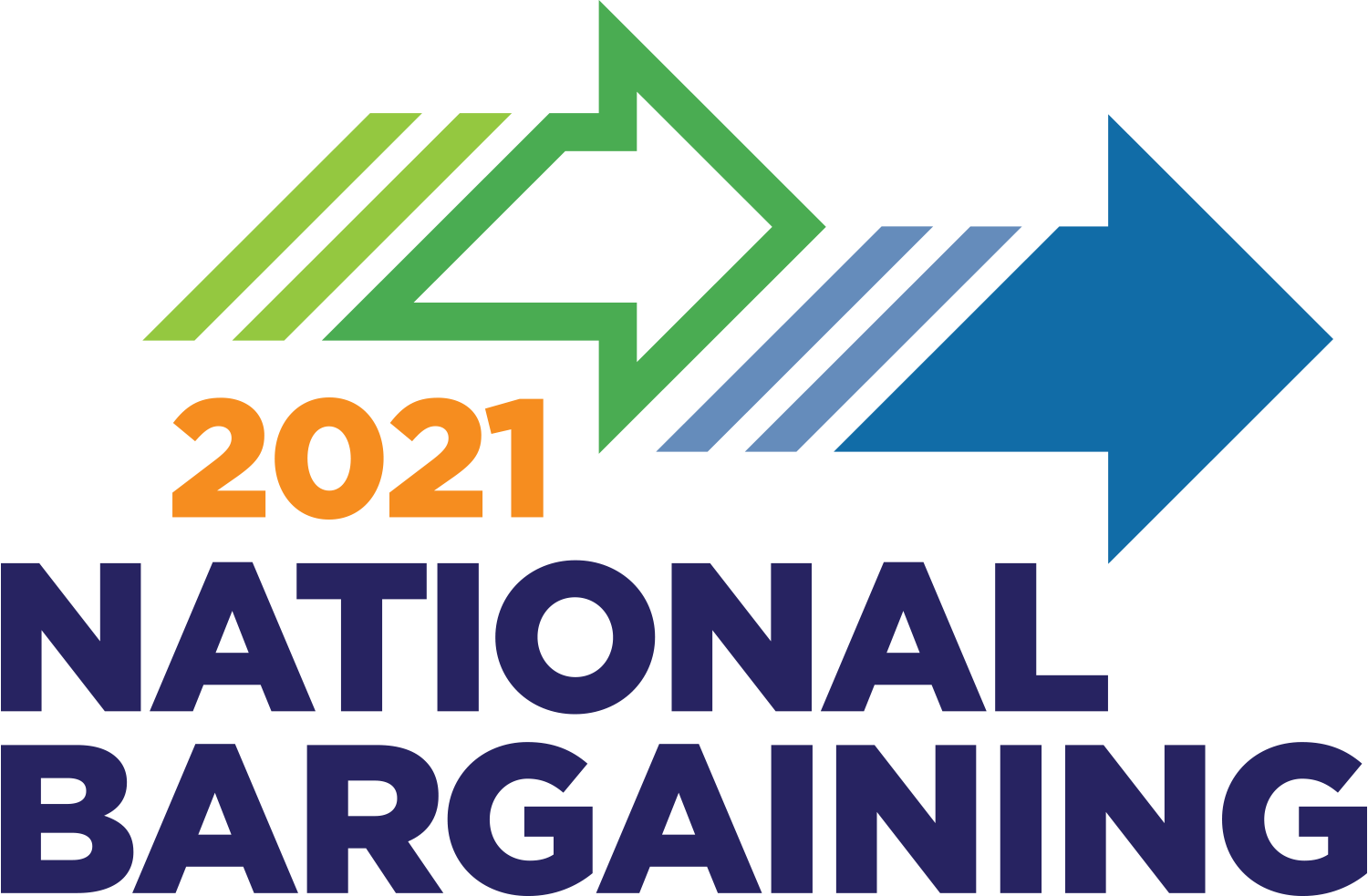
Nursing Assistant Clinical Director Alainie Lounsbury, RN (standing), checks in with (left to right) Dan Alexandroni, Donielle Tresvant and Hong-le Ton-Nu, all RNs who are represented by UNAC/UHCP, one of the unions in the Alliance of Health Care Unions.
Simple tool makes it easy to track issues surfaced in conversations
Alaine Lounsbury, RN, is proud of her nursing team at Downey Medical Center in Southern California. 4 West team members have worked together for decades, forming bonds that have led to high patient satisfaction rates and region-wide recognition.
Lounsbury, nursing assistant clinical director, attributes the team's success to rounding — the practice of engaging frontline workers in face-to-face conversations on the floor and listening to their concerns. Managers who round say it helps build a culture of engagement and dialogue, a key goal of the Labor Management Partnership between Kaiser Permanente and the Partnership unions.
“It’s about making a connection,” explains Lounsbury, who rounds quarterly on 90-plus staff members using Kaiser Permanente’s Rounding Plus online tool [KP Intranet]. “You want to hear the good with the bad.”
Removing roadblocks
With the tool, managers can use their mobile device to identify, track and escalate issues surfaced during rounding conversations. Program-wide, nearly 10,000 leaders and managers use the program.
At Downey, nurses used rounding conversations to speak up about a workflow issue. Because 4 West is the only unit with nurses qualified to give chemotherapy to adults, it meant staff members sometimes had to leave their department to administer drugs to patients. Their frequent absences meant more work for others.
“I heard them in rounding say, ‘You need to figure this out,’” recalls Lounsbury. She and her team developed new protocols to enable others outside the unit to give the medication. “That was a big satisfier.”
Getting visual
To help her systematically follow up and act on her team’s questions and concerns, Lounsbury uses a colorful poster, called the Stoplight Report, that assigns green, yellow and red colors to track the status of issues.
The poster was conceived by Downey Quality Coordinator Suxian Hu, RN, based on the color-coded reports managers receive through the Rounding Plus program. Last year, all of Downey’s inpatient nursing units began using it.
In 4 West, the poster hangs prominently in the conference room, where everyone can see it.
“Staff members know something is being done,” says Donielle Tresvant, RN, a staff nurse and member of UNAC/UHCP, one of the unions in the Alliance of Health Care Unions. “They know they’re being heard.”
Nurses say the information shared on the poster also fosters team communication and collaboration. “It keeps us updated about things at work and it helps us improve our care by being focused,” says Brianna Schneider, RN, a member of UNAC/UHCP. “It makes for a cohesive atmosphere.”
